Cotton Campaign: Workers and farmers appear vulnerable to abuses by clusters
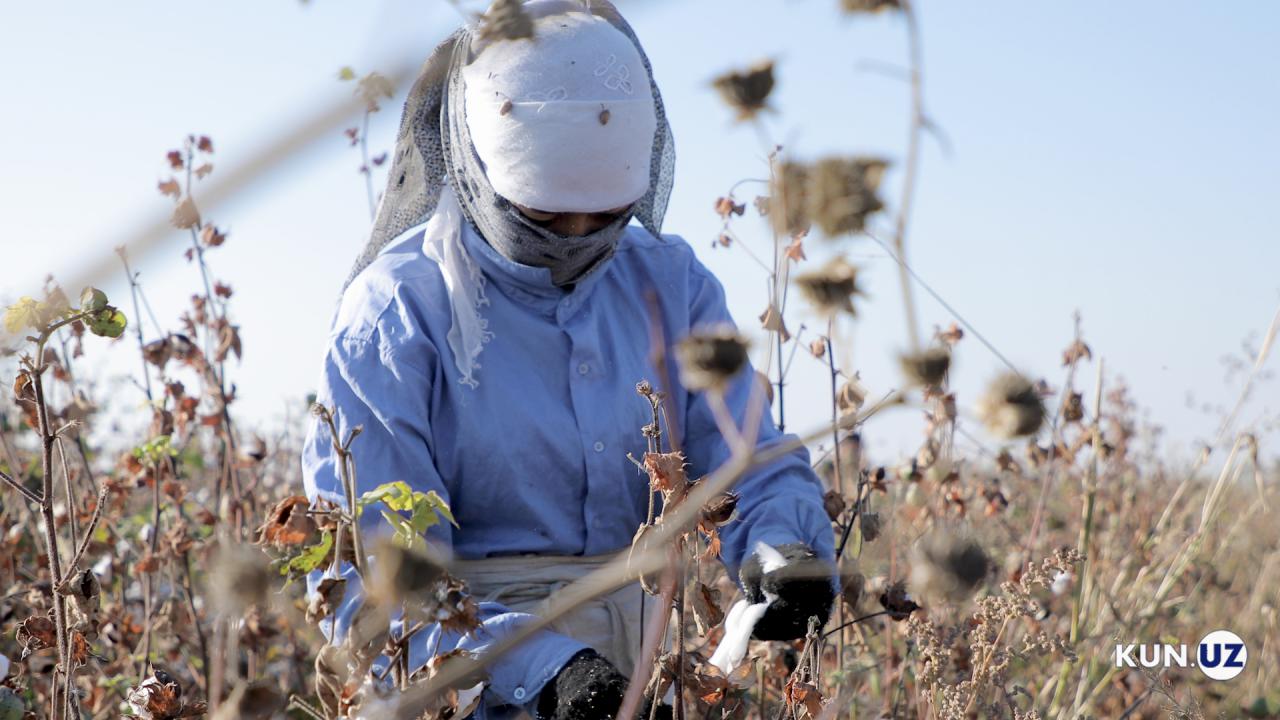
Photo: KUN.UZ
Bennett Freeman, a co-founder of the Cotton Campaign, which aims to end forced labor in Uzbekistan’s cotton fields, is confident that the government’s commitment to eliminating forced labor in the cotton sector will remain strong and unchanging. Freeman made the statement during a roundtable discussion on the topic “Towards Sustainable Development through Decent Work” organized by the Ministry of Employment and Labor Relations.
The Cotton Campaign applauds the continued commitment of the Government of Uzbekistan (GOU) to this historic process of reform to end forced labor in the cotton sector. We have no doubt that this commitment remains strong and steadfast. We appreciate the critical importance of the ILO/Third Party Monitoring (TPM) effort, along with the essential role for parallel monitoring and reporting by civil society. Congratulations to all involved in monitoring in challenging circumstances amidst the pandemic sweeping this county and the world.
As the Cotton Campaign’s close partner the Uzbek Forum refines and finalizes its analysis, we welcome significant further progress toward ending forced labor of cotton pickers in the 2020 cotton harvest—broadly consistent with the TPM findings.
This was the first harvest where the Uzbek Forum observed districts with no apparent forced labor. That is indeed a truly positive development given the history to overcome—and consistent with our expectations for this harvest given that continuing, commitment to reform on the part of the GOU.
It is clear that there was substantially less forced labor of cotton pickers. That reduction was partly due to large numbers of people needing cash amidst the economic impacts of Covid-19, including major job losses and large numbers of returning migrant workers. It will be essential to maintain that strong supply of voluntary labor in what we hope will be a stronger economy as the pandemic diminishes.
It is also clear that the labor inspectorate has stepped up enforcement efforts, another reflection of the strong commitment to reform. Even with fewer people in forced labor this year, the number of given fines or administrative penalties was about the same as last year due to greater enforcement.
According to Freeman, despite the elimination of quotas, regional and district officials remain heavily involved in supervising the harvest and ensuring that farmers met their contracts and that district/regional production targets were met as well.
It appears that some officials mobilized workers of public sector organizations or collected money for replacement pickers.
We have seen little progress in developing independent recruitment systems necessary to sustain the reduction in forced labor once the economy recovers. We urge a sharpening of focus on this vital need.
We observed differentiation among districts: some had no forced labor due to the high availability of voluntary pickers, mitigation efforts by clusters, and responsible conduct by officials; at the same time, other districts had forced labor, apparently due to close entanglements between clusters and government officials. These regional differentiations, while exposing problems and gaps, should nonetheless reinforce confidence that forced labor can indeed be eliminated entirely.
Yet one of the most important challenges remains is to empower civil society. Civic space remains constrained, indeed tightly controlled and arbitrarily restricted. Workers and farmers appear vulnerable to abuses by clusters, without opportunities for collective bargaining, and with little access to responsive grievance mechanisms that can provide a remedy for labor rights abuses.
We believe that reform can be reinforced and accelerated by wider participation of civil society—including easier and faster NGO registration to enable continued monitoring of labor and human rights. Plus, we encourage stronger protection for worker rights, including movement towards collective bargaining and freedom of association as well as independent trade unions, even as forced labor is fully eliminated.
Freeman said that this enabling environment is also necessary to attract global apparel brands that are constrained by law and policy to have zero tolerance for forced labor—but may be interested in coming to Uzbekistan.
Those brands need assurance that the risks of sourcing and operating in Uzbekistan are diminishing—and that reform is irreversible. Global brands have global options—and they face global expectations that labor rights and human rights must be respected.
The Cotton Campaign remains committed to encourage and help facilitate responsible sourcing—sourcing that protects human rights and labor rights while empowering civil society, workers, and farmers. We believe that the Responsible Sourcing Agreement (RSA) framework we have developed can be a model—and a magnet—to attract global brands that are committed to labor and human rights and are attracted to the opportunities presented by a reforming Uzbekistan.
Truly historic progress has been made—in just over three years since late 2017—and success is not only in sight but now within reach.
Success is not only overcoming over half a century of forced labor during the Soviet period but also overcoming a further quarter-century of forced labor in an independent Uzbekistan. Success also means catching up at the same time with the last two decades of global progress in implementing labor and human rights standards and best practices across industries: agriculture and apparel; oil and mining, information and communications technology; and now others as well.
As Uzbekistan commits to global standards and best practices, it will be able to compete globally and to lift the lives of its people.
Bennett Freeman said the Cotton Campaign will continue to be an advocate and a partner for reform to achieve this historic success. “We will continue to work together with the Uzbek government, civil society, workers and farmers, the ILO, and the other important international partners here today. We are ready to move forward together,” he concluded.
Related News
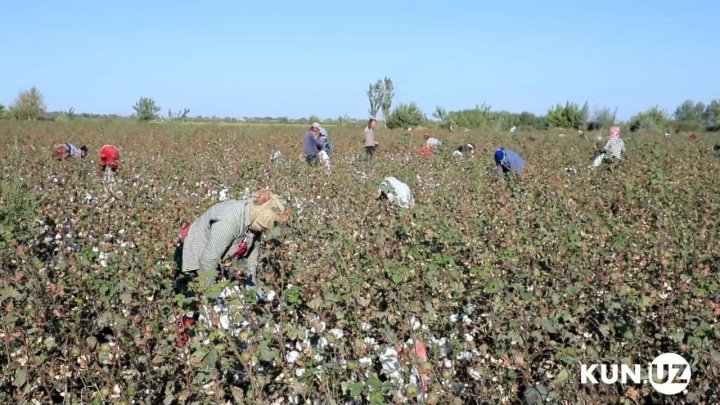
16:02 / 10.10.2024
Ministry of Education condemns illegal involvement of teachers in cotton harvesting
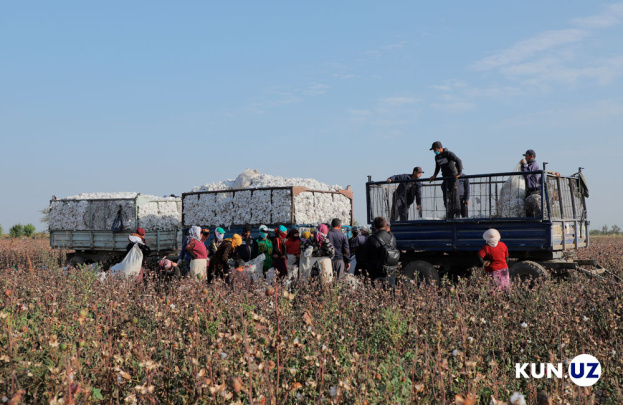
12:41 / 10.10.2024
Uzbekistan investigates forced labor claims in cotton harvest
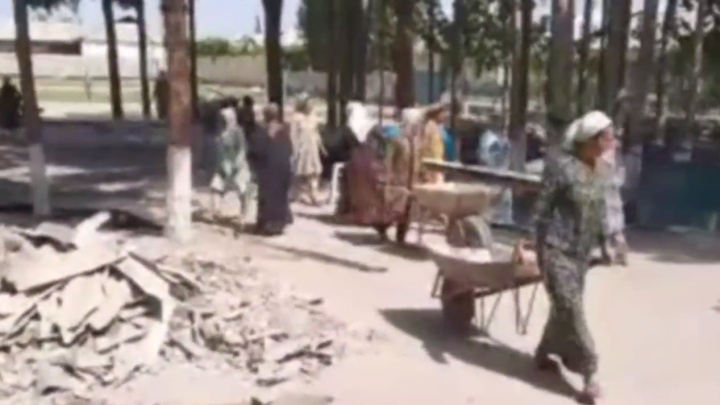
09:39 / 15.08.2024
School principal in Andijan fined for attracting teachers to forced labor
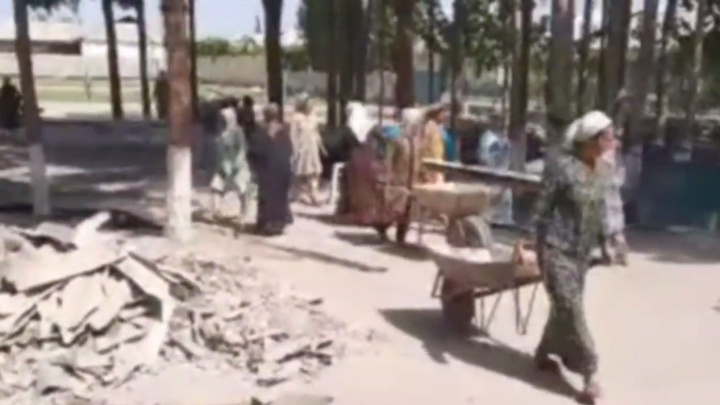
12:16 / 13.08.2024



